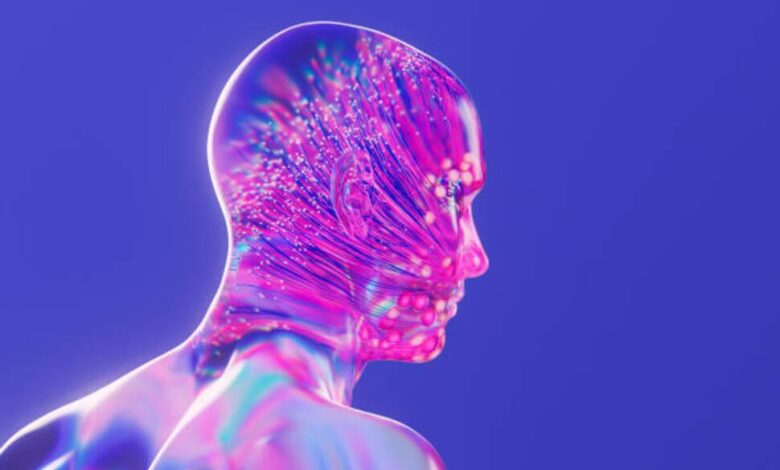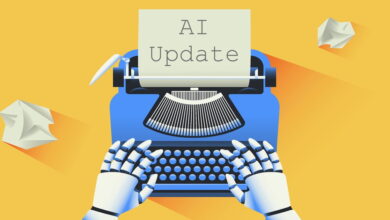Will Artificial Intelligence Steal My Job? | On Careers

Key Takeaways:
- Not all jobs are vulnerable to artificial intelligence, according to three AI experts, who say some jobs will simply evolve in the future.
- Consumers still prefer personalized support over chatbots, and AI still lacks the creativity to handle some complex problems and strategic planning.
- In some industries such as cybersecurity AI will usher in new career opportunities.
Employees in many industries are worried about whether artificial intelligence will make their jobs irrelevant. While these fears are valid, the human element is still highly valued, according to a trio of AI experts who were asked to reflect on whether AI is likely to steal jobs in the near future.
Getty Images
Some studies have shown that people still prefer to receive more personalized support from employees than from AI technology – receiving customer service from a person rather than a chatbot, for example. Back in 2019, 86% of people said they preferred interacting with a real person to a chatbot, according to a survey of 1,000 consumers by CGS, a business applications, outsourcing and learning company. In 2023, that number hadn’t changed much, with 80% of consumers still preferring human interaction, according to a survey by Invoca, a company that uses AI in call tracking and conversational analytics solutions.
Will AI Take My Job?
Even with the accelerated adoption of AI, the human touch is still necessary, wrote Cory Halbardier, chief operating officer of Blazeo, an ad conversion platform, in an email.
“Take chatbots for instance – especially for small businesses that don’t have the time or resources to tend to leads 24/7, automated tools are imperative,” Halbardier said. “If no live person is guiding these tools, many customers don’t receive the empathy, understanding and communication they need. That is also often the determining factor of whether they continue considering a service or get frustrated and move on to the next option.”
This is why AI technologies still need human guidance to improve and run at all, he added. “They’re not going to replace live humans soon or ever,” Halbardier said.
As an ex-IBM internet security systems engineer and founder of IT services company Cyber Command LLC, Reade Taylor’s perspective on AI’s impact on jobs is shaped by his experience integrating new technologies into business operations. He’s seen AI’s potential not just as a disruptor, but as a catalyst for creating new opportunities and enhancing the effectiveness of human efforts in the cybersecurity realm.
“AI is indeed reshaping jobs, but it’s important to distinguish between job displacement and job transformation,” Taylor said in an email. “In cybersecurity, for example, AI has taken over tedious tasks such as monitoring network traffic for anomalies, which allows human analysts to focus on more complex threat analyses and strategic security planning.”
Taylor emphasized that this shift is elevating the roles of IT professionals, making their work more impactful and strategic. Rather than stealing jobs, he says, AI is augmenting the human workforce by providing tools that can handle the increasing volume and sophistication of cyberthreats.
What Jobs Will AI Replace?
The jobs that AI will replace are “simple, menial jobs” that involve basic data entry and basic problem-solving, wrote AI researcher Regina Grogan, in an email. The reason for this is that AI lacks the human ingenuity and creativity to solve extremely complex problems – for now.
“AI models struggle to take many conflicting factors and ideas into account; the nuance isn’t there,” Grogan said. “Lots of jobs people do, at least in the white-collar sector, involve a lot of nuance, judgment and decision-making. AI doesn’t perform well there.”
When considering which jobs AI will replace, Reade suggested sectors where AI can perform tasks more efficiently and with fewer errors than humans. He reemphasized that this doesn’t always mean job loss. Instead, it often means job evolution. For instance, he pointed out that AI’s role in software development is growing, particularly in areas like automated testing and code generation.
Will AI Replace Programmers?
“When I see code written by AI, I also see lots of problems,” she said. “It’s easy, as of yet, to inject malicious attacks into the code and into large language models in general. So, from the lens of security, it’s probably not a great idea to copy and paste AI-generated code from the internet into your codebase – not only for logistical reasons like problems in the code but because of malicious code attacks that can affect the security of your company.”
Instead of eliminating programmer positions, Grogan believes AI could create jobs focused on secure code and secure code review. “This is because if people are actually going to use AI-generated code, they have to focus on the security of their organization,” she said. “We’ve seen AI-related cyberattacks rise across the board, so if companies are going to use AI, they have to take the right precautions.”
Grogan also predicts that as people become more concerned about the privacy and security of some of these applications, AI is likely to create many jobs in data security and data privacy.
Reade agreed that AI is unlikely to replace programmers outright. Instead, he predicts it will change the nature of programming jobs, requiring programmers to adapt and work alongside AI, leveraging its capabilities to enhance productivity and innovation.
“While AI might automate certain programming tasks, the demand for skilled programmers capable of designing algorithms, improving AI systems and integrating ethical AI use into software development is on the rise,” Reade said.



